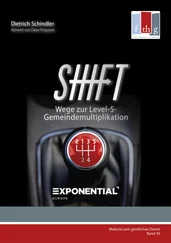Biberstein did not have to give Oskar too much home instruction in the facts of typhus.
Typhus was carried by louse bite. The prisoners were infested by uncontrollable populations of lice. The disease took perhaps two weeks to incubate. It might be incubating now in a dozen, a hundred prisoners. Even with the new bunks installed, people still lay too close. Lovers passed the virulent lice to each other when they met, fast and secretly, in some hidden corner of the factory. The typhus lice were wildly migratory. It seemed now that their energy could checkmate Oskar’s.
So that when Oskar ordered a delousing unit—showers, a laundry to boil clothes, a disinfection plant—built upstairs, it was no idle administrative order. The unit was to run on hot steam piped up from the cellars. The welders were to work double shifts on the project. They did it with a will, for willingness characterized the secret industries of Brinnlitz. Official industry might be symbolized by the Hilo machines rising from the new-poured workshop floor. It was in the prisoners’ interest and in Oskar’s, as Moshe Bejski later observed, that these machines be properly erected, since it gave the camp a convincing front. But the uncertified industries of Brinnlitz were the ones that counted. The women knitted clothing with wool looted from Hoffman’s left-behind bags. They paused and began to look industrial only when an SS officer or NCO passed through the factory on his way to the Herr Direktor’s office, or when Fuchs and Schoenbrun, the inept civil engineers (“Not up to the weight of our engineers,” a prisoner would later say) came out of their offices.
The Brinnlitz Oskar was still the Oskar old Emalia hands remembered. A bon vivant, a man of wild habits. Mandel and Pfefferberg, at the end of their shift and overheated from working on the pipe fittings for the steam, visited a water tank high up near the workshop ceiling. Ladders and a catwalk took them to it. The water was warm up there, and once you climbed in, you could not be seen from the floor. Dragging themselves up, the two welders were amazed to find the tub already taken. Oskar floated, naked and enormous. A blond SS girl, the one Regina Horowitz had bribed with a brooch, her naked breasts buoyant at the surface, shared the water with him. Oskar became aware of them, looked up at them frankly. Sexual shame was, to him, a concept something like existentialism, very worthy but hard to grasp. Stripped, the welders noticed, the girl was delicious.
They apologized and left, shaking their heads, whistling softly, laughing like schoolboys. Above their heads, Oskar dallied like Zeus.
When the epidemic did not develop, Biberstein thanked the Brinnlitz delousing unit. When the dysentery faded, he thanked the food. In a testimony in the archives of the Yad Vashem, Biberstein declares that at the beginning of the camp, the daily ration was in excess of 2,000 calories. In all the miserable winter-bound continent, only the Jews of Brinnlitz were fed this living meal. Among the millions, only the soup of the Schindler thousand had body.
There was porridge too. Down the road from the camp, by the stream into which Oskar’s mechanics had recently thrown black-market liquor, stood a mill. Armed with a work pass, a prisoner could stroll down there on an errand from one or another department of DEF. Mundek Korn remembers coming back to the camp loaded with food. At the mill you simply tied your trousers at the ankles and loosened your belt. Your friend then shoveled your pants full of oatmeal. You belted up again and returned to the camp— a grand repository, priceless as you walked, a little bandy-legged, past the sentries into the annex. Inside, people loosened your cuffs and let the oatmeal run out into pots.
In the drafting department, young Moshe Bejski and Josef Bau had already begun forging prison passes of the type that allowed people to make the mill run. Oskar wandered in one day and showed Bejski documents stamped with the seal of the rationing authority of the Government General. Oskar’s best contacts for black-market food were still in the Cracow area. He could arrange shipments by telephone. But at the Moravian border, you had to show clearance documents from the Food and Agriculture Department of the Government General. Oskar pointed to the stamp on the papers in his hand. Could you make a stamp like that? he asked Bejski. Bejski was a craftsman. He could work on little sleep. Now he turned out for Oskar the first of the many official stamps he would craft. His tools were razor blades and various small cutting instruments. His stamps became the emblems of Brinnlitz’ own outrageous bureaucracy.
He cut seals of the Government General, of the Governor of Moravia, seals to adorn false travel permits so that prisoners could drive by truck to Brno or Olomouc to collect loads of bread, of black-market gasoline, of flour or fabric or cigarettes. Leon Salpeter, a Cracow pharmacist, once a member of Marek Biberstein’s Judenrat, kept the storehouse in Brinnlitz. Here the miserable supplies sent down from Gróss-Rosen by Hassebroeck were kept, together with the supplementary vegetables, flour, cereals bought by Oskar under Bejski’s minutely careful rubber stamps, the eagle and the hooked cross of the regime precisely crafted on them.
“You have to remember,” said an inmate of Oskar’s camp, “that Brinnlitz was hard. But beside any other—paradise!” Prisoners seem to have been aware that food was scarce everywhere; even on the outside, few were sated.
And Oskar? Did Oskar cut his rations to the same level as those of the prisoners?
The answer is indulgent laughter. “Oskar? Why would Oskar cut his rations? He was the Herr Direktor. Who were we to argue with his meals?” And then a frown, in case you think this attitude too serflike. “You don’t understand. We were grateful to be there. There was nowhere else to be.”
As in his early marriage, Oskar was still temperamentally an absentee, was away from Brinnlitz for stretches of time. Sometimes Stern, purveyor of the day’s requests, would wait up all night for him. In Oskar’s apartment Itzhak and Emilie were the keepers of vigils.
The scholarly accountant would always put the most loyal interpretation on Oskar’s wanderings around Moravia. In a speech years after, Stern would say, “He rode day and night, not only to purchase food for the Jews in Brinnlitz camp—by means of forged papers made by one of the prisoners—but to buy us arms and ammunition in case the SS conceived of killing us during their retreats.” The picture of a restlessly provident Herr Direktor does credit to Itzhak’s love and loyalty. But Emilie would have understood that not all the absences had to do with Oskar’s brand of humane racketeering.
During one of Oskar’s furloughs, nineteen-year-old Janek Dresner was accused of sabotage. In fact Dresner was ignorant of metalwork. He had spent his time in Płaszów in the delousing works, handing towels to the SS who came for a shower and sauna, and boiling lice-ridden clothes taken from prisoners. (from the bite of a louse he’d suffered typhus, and survived only because his cousin, Dr. Schindel, passed him off in the clinic as an angina case.)
The supposed sabotage occurred because engineer Schoenbrun, the German supervisor, transferred him from his lathe to one of the larger metal presses. It had taken a week for the engineers to set the metrics for this machine, and the first time Dresner pressed the start button and began to use it, he shorted the wiring and cracked one of the plates. Schoenbrun harangued the boy and went into the office to write a damning report. Copies of Schoenbrun’s complaint were typed up and addressed to Sections D and W in Oranienburg, to Hassebroeck at Gróss-Rosen, and to Untersturmführer Liepold in his office at the factory gate.
Читать дальше












